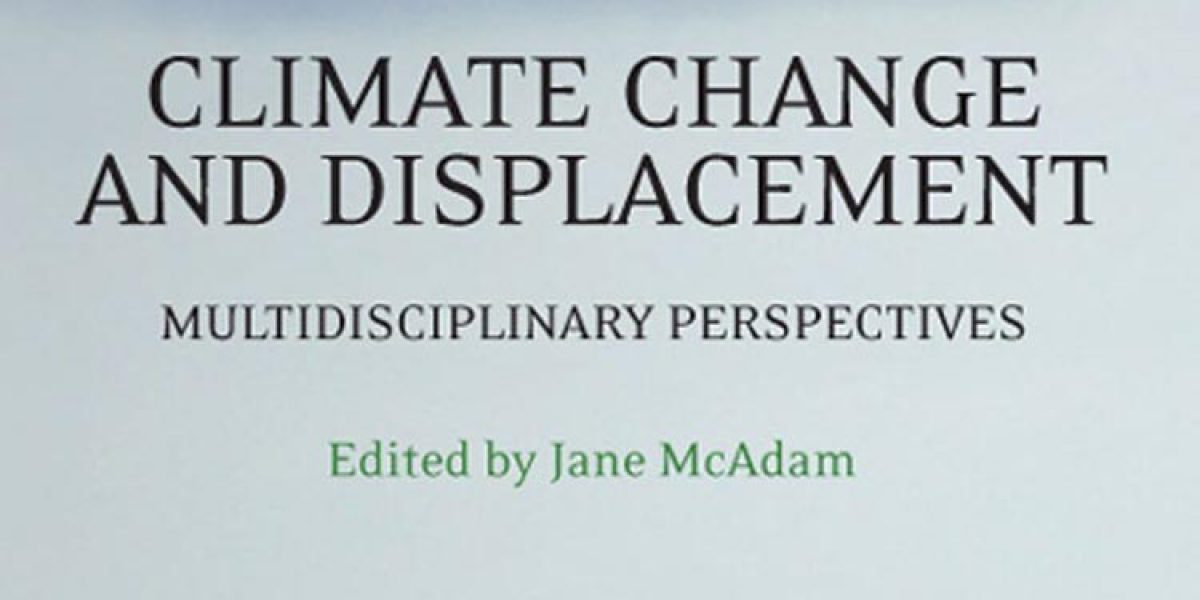Australia: JRS Australia offers chapters to two books
11 January 2011|Catherine Marshall

Australia, 11 January 2011 – These are some of the questions explored by the Associate Director of Jesuit Refugee Service, Sr Maryanne Loughry, in chapters she has authored for two books on the subject of refugees.
The first book, Driven from Home: Protecting the rights of forced migrants, was the outcome of a conference on forced migration held at Boston College in the US and attended by regional directors of JRS. Sr Loughry authored a chapter on how Iraqi refugees are challenging the international refugee regime.
‘The Iraqis have tipped the regime into crisis management because of the number of people living in urban settings in Jordan, Syria and Lebanon. That’s something that the international refugee regime is not familiar with’, says Sr Loughry. ‘More than half of the world’s refugees now live in urban settings, and the Iraqi numbers have tipped that statistic.’
Sr Loughry says the work currently being undertaken by Fr David Holdcroft SJ among urban refugees in southern Africa is of great interest more broadly since the urbanisation of refugees is being replicated around the globe.
‘My article highlights the crisis, and how we need to reconceptualise who refugees are and what services they need. While we still have many refugees in camps, the urban reality creates a whole new challenge as to how to identify them and how to work with them. Often they’re living in the slums alongside people who are not refugees. We have to study the issue, and Boston College is going to work further with JRS and David Holdcroft in particular on what this means for JRS.’
The second book, Climate change and displacement: Multidisciplinary Perspectives, draws on insights obtained by Sr Loughry while travelling to Kiribati and Tuvalu in 2009 on a trip funded by the Psychiatry Department at the University of NSW. Her chapter, titled Climate change, human movement and the promotion of mental health: What have we learnt from earlier global stressors? examines the mental health challenges caused by climate change and human movement.
‘In Kiribati and Tuvalu I sat and interviewed people on what their fears were about their future and the future of their community. What I became aware of is that these people already have a lot of stressors in their life, including food insecurity, overcrowding, poverty, and concern for their children’s future. And on top of this, climate change is seen as exacerbating some of these concerns’, she says.
Sr Loughry is currently following the movement of people from these countries and the atolls of Bougainville with a view to understanding what their needs are and how to best advocate for these needs to be met.
‘In those places they attribute sea water inundation, the erosion of land and the inability to grow crops to rising seawater and climate change. Their freshwater lens has become salinated, which is why they now have food insecurity because they can no longer grow what they used to grow traditionally.’
Sr Loughry says that Australia has its own challenges in the form of the Torres Strait Islands and inland rural settings from which people may be forced to move due to climate change.
‘But insufficient attention is being paid to the Pacific Island nations which are really bearing the brunt of what is perceived to be climate change.’
Driven from Home: Protecting the rights of forced migrants, is edited by David Hollenbach SJ, University Chair in Human Rights and International Justice at Boston College, and published by Georgetown University Press.
Climate change and displacement: Multidisciplinary Perspectives is edited by Jane McAdam, Associate Professor in the Faculty of Law at the University of NSW, and published by Hart Publishing.


